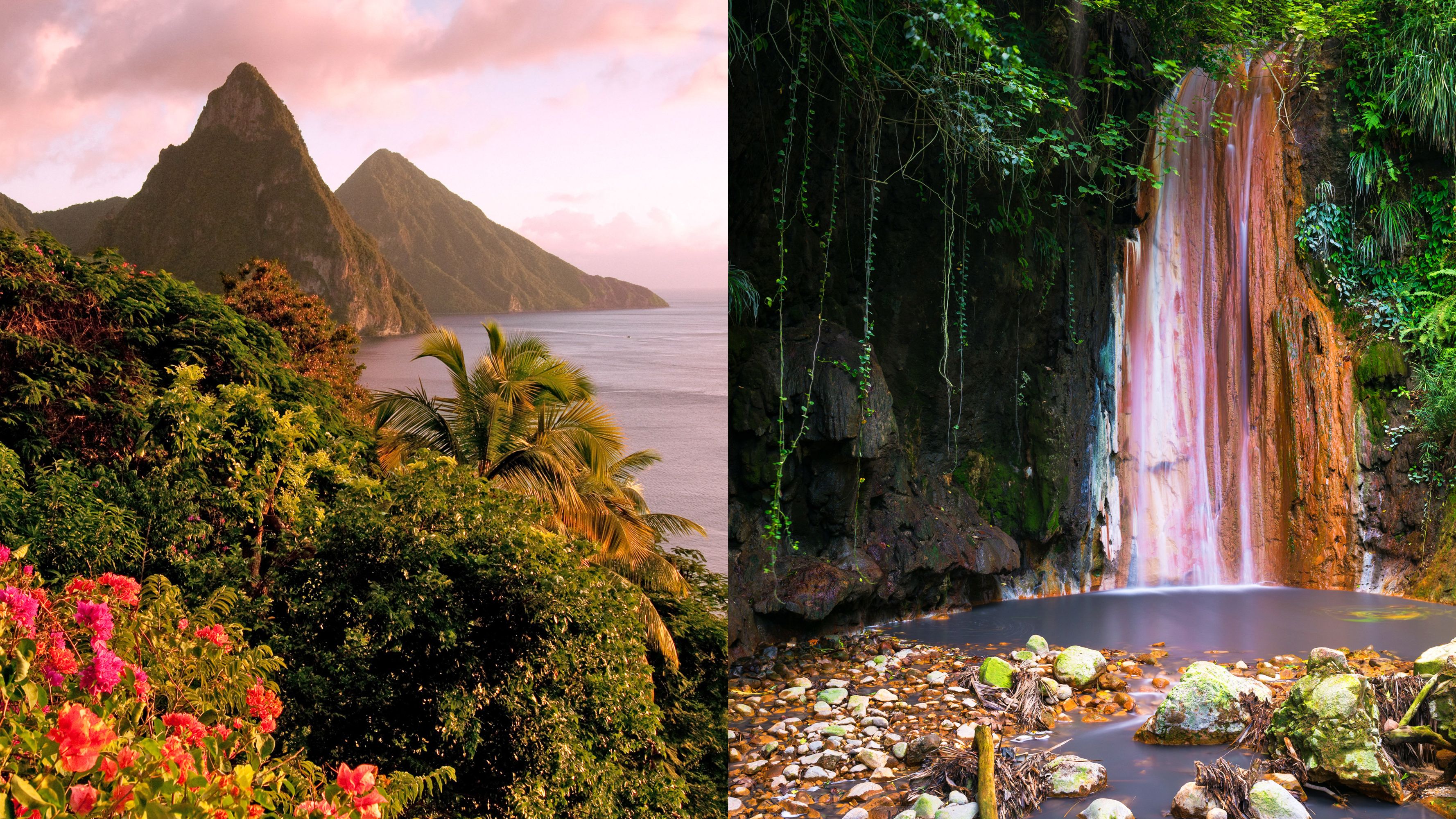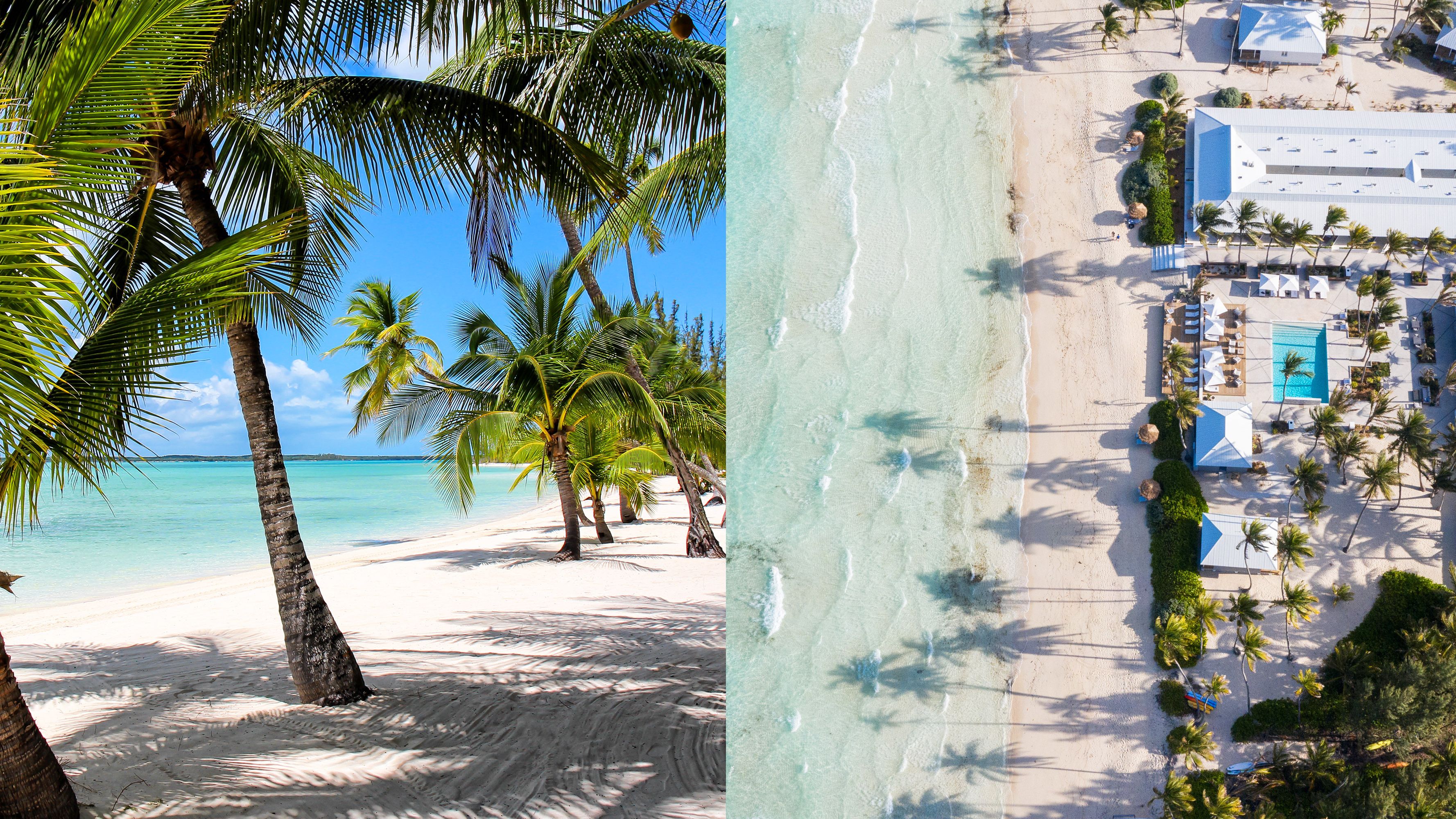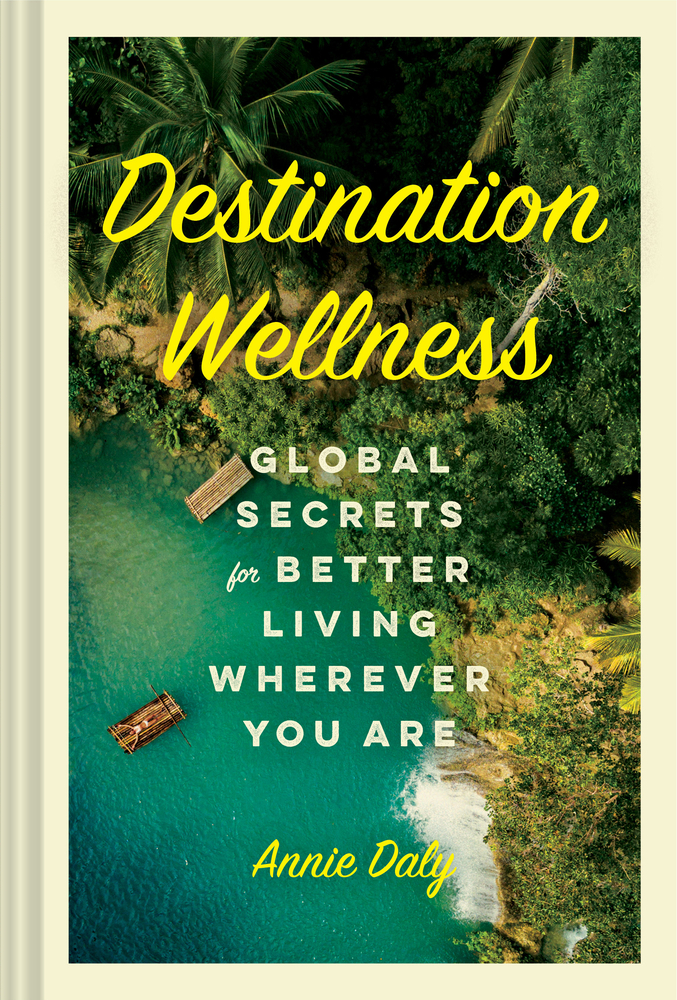5 Wellness Destinations That Aren't Actually Wellness Retreats
Wellness goes far deeper than spa days and sweaty bootcamp classes under shaded palapa huts.


When you think of "wellness travel," you probably think of those fancy health retreats in faraway places—the kind that are nestled in a grove of swaying coconut trees and offer daily deep tissue massages with a side of ocean breeze. Perhaps there’s an open-air yoga shala on property, with class times written in cursive on a chalkboard outside the entrance, and a cute little organic cafe serving up a plethora of rainbow-colored "detox" juices.
Now, don’t get me wrong: I love places like that. They are soothing and rejuvenating and sound especially appealing after the difficult year we’ve had. But they are also a limited way to define "wellness travel." To me, the concept goes far deeper than spa days and sweaty bootcamp classes under shaded palapa huts. It’s actually about traveling to places that can fundamentally change the way you think about wellness once you’re home; places where well-being is so baked into the culture, you may be inspired to shift your perspective simply by chatting with locals and observing your surroundings.
I’m such a big believer in this idea that I wrote a whole book about it! Out this week, Destination Wellness documents my (pre-pandemic) journey around the world in search of true wellness wisdom. To write it, I traveled to Jamaica, Norway, Hawaii, India, and Brazil to interview locals and experts about the well-being principles that define their lives. I chose these places not because they’re wellness hotspots like Sedona, Arizona, and Santa Teresa, Costa Rica, but because they all have a unique cultural approach to health and happiness that I felt could be useful for life at home. And that’s really my main message here: While fancy zen retreats may feel incredible in the moment, "wellness travel" is also about seeking out new ideas for better living long after your trip is over.
On that note, read on for five global wellness spots that aren’t marketed as "wellness retreats" at all. (Though be sure to contact the property directly before booking to get the most up-to-date information on COVID-19 guidelines, as this could definitely impact where you choose to go.) Most are hotels I stayed in on my Destination Wellness reporting trips, while a couple are hotels that are still on my list—but all of them will leave you with accessible wellness lessons you can weave into your life at home.
Strawberry Hill Hotel, Blue Mountains, Jamaica
A post shared by Strawberry Hill Hotel (@strawberryhillhotel)
A photo posted by on
In my humble opinion, Jamaica’s Blue Mountains are an incredibly underrated wellness destination. Located about an hour north of Kingston, they are fresh and lush and home to some of the best coffee in the world. (I defer to Damian Marley’s song "Hey Girl," where he sings about drinking "Blue Mountain cappuccinos.") But the real reason they ooze well-being is that they’re infused with Ital, the Rastafari philosophy of natural living. Rastafari is both the social and political movement that originated in Jamaica, and the name for the people who follow it—most notably, Bob Marley.
Rastas who live an Ital life avoid all processed foods and animal products, choosing instead to grow most of their own food as a way to both connect to Mother Earth and live on their own terms, away from modern society. Many own farms in the Blue Mountains, which is why Strawberry Hill Hotel is the perfect homebase if you want to learn more about this natural lifestyle yourself.
Owned by Chris Blackwell, the founder of Island Records (the British-Jamaican record label that signed Bob Marley and other reggae greats), the hotel is steeped in Rastafari history. It’s also set on 26 acres of land, where the staff grows their own coffee and lots of tropical fruit and veggies (think: mangoes, avocados, bananas, and soursop, to name a few). And although its restaurant is not Ital itself—it caters to a luxury crowd that likes to indulge—it does have vegan options on the menu. The hotel offers lots of guided hikes through the beautiful Blue Mountains, so you can get a feel for the land that many Rastafarians live off of to this day—and maybe even get inspired to live more naturally at home.
Bjornfjell Mountain Lodge, Alta, Norway
A post shared by Bjørnfjell Mountain Lodge (@bjornfjellmountainlodge)
A photo posted by on
When I was in Norway, I learned all about the local cultural concept friluftsliv, which, loosely translated, means "the free air life." Friluftsliv refers to the idea that life is best lived outside—no matter the weather. As my Norwegian friend Andrea told me, it’s ultimately about seeking out that natural energy and clarity only fresh air can provide: “We just feel better when we have that rosy glow in our cheeks,” she said. Norwegians have outdoor kindergartens and friluftsliv schools, they spend most Sundays hiking in the woods with their families, and they even leave their babies in strollers outside their houses to get them used to sleeping in the great outdoors!
But perhaps the most quintessential marker of friluftsliv is Norway’s cabin system. Outdoor living is so entrenched in Norwegian society, the government provides outdoor cabins for its citizens to use at their leisure. All they have to do is respect the property and leave money at the door when they leave (it’s an honor system). Bjornfjell Mountain Lodge in Alta wants to give travelers the opportunity to immerse themselves in this cabin culture, too. The lodge offers all sorts of outdoor activities, like sledding and snow tubing and ice fishing, but true friluftsliv devotees know that the philosophy is best honored by chilling in nature with nothing but a backpack and a bonfire and the sound of the wind.
One Norwegian I interviewed summed it up best: "Friluftsliv is this feeling that you get when you’re out in nature and you look around and you take a deep breath and it’s just...ahhh. And you can finally relax."
The Cliffs at Princeville, Kauai, Hawaii
A post shared by Cliffs at Princeville (@cliffsprinceville)
A photo posted by on
One of my favorite Hawaiian wellness lessons is aloha ʻāina, which translates to "love of the land." In Hawaii, saying "aloha" does not only mean hello and goodbye—it also means that you recognize that all living things are connected. Aloha ʻāina, then, speaks to the uniquely Hawaiian idea that we must take care of the land because we are the land. And there is perhaps no better place to immerse yourself in this concept than The Cliffs at Princeville in Kauai.
Located on 22 acres of verdant land on the north shore of Kauai, The Cliffs is a resort comprised of condos, timeshares, and vacation rentals. The hotel itself is known for its regenerative travel practices, like solar-powered suites, which help you take care of Mother Earth on your trip. Staying there also means that you are staying in the heart of nature, away from the touristy parts of Hawaii and right in the middle of its aloha ʻāina essence.
Kauai is nicknamed "the garden island" for its abundance of greenery, and the resort can hook you up with activities to explore it, from tropical waterfall hikes to snorkeling trips to farm-to-table lunches. Or you can just chill on the expansive bluffs and take it all in, reminding yourself that you are the ocean and you are the tree and you are the hibiscus flower. As countless Hawaiians I interviewed told me, the more we realize that we’re all connected, the better we all will be.
Comuna do Ibitipoca, Minas Gerais, Brazil
In the U.S., we tend to think of wellness as a solitary pursuit. But in Brazil, wellness is a community effort—the common belief is that you can't be well if your family is not well. One Brazilian professor I interviewed, who spent five years studying culture in America, said it best: "I found that wellness in America is about yourself: If you're healthy physically and psychologically, if you're financially well, if you're in a good relationship, and if you eat well, you're considered healthy in the public eye. But while Brazilians of course care about those things, too, the biggest factor of all is your family—you cannot be well if your family is not well. Well-being is a group thing, not an individual thing."
Comuna do Ibitipoca, a 13,000-acre farm slash commune slash hotel slash paradise in the farming state of Minas Gerais, perfectly encapsulates this Brazilian sense of communal wellness. I stayed there on my reporting trip to Brazil and loved its warm spirit. While Comuna do Ibitipoca does have all sorts of healthy elements, like daily 9 a.m. yoga classes, lots of hiking and biking, and fresh farm-to-table meals, the owner Renato may be its biggest wellness secret. Originally from Rio, he bought the land back in the 1980s, and soon realized that the best way to keep it sustainable was to build a community around it, so that’s what he did. Now when you stay there, the entire community—from the staff to the locals who live nearby—takes you in with open arms.
"Everyone is local; everyone is family," Renato told me over breakfast one morning. "I started the property, but now everyone who works here is the owner. And that’s what makes me happiest of all."
The Nattika Beach Ayurveda Resort, Thrissur, Kerala, India
A post shared by Nattika Beach Ayurveda Resort (@nattikabeachayurvedaresort)
A photo posted by on
Located in the south of India, Kerala is known as the beating heart of Ayurveda—the ancient Hindu system of medicine and healing that’s focused on creating balance in your body, mind, and spirit. I traveled there to immerse myself in 5,000-year-old Ayurvedic teachings in the hopes of learning how to feel more grounded and whole in everyday life. Though Nattika Beach Ayurveda Resort is technically part spa, it’s much more than just massages. It’s run by certified practitioners and doctors who teach you how to live an Ayurvedic lifestyle by leading you through one for anywhere from seven to 21 days (I did seven).
Ayurveda is centered on the idea that there are three doshas (life forces) in this world, and we all have a dominant one that’s defined our lives since birth. Science then gives us the tools to balance out our doshas when they become uneven, so that we spend the majority of our lives feeling centered. Some of these tools involve redefining the way you eat (for example, people with fiery dispositions should generally avoid spicy foods as they aggravate an already-hot internal fire), adopting a daily routine that revolves around your circadian rhythm, slathering yourself with healing oil, and keeping tabs on your emotions. I came back from Kerala with a much deeper knowledge of these tools than I had when I arrived, and continue to lean on them whenever I feel myself faltering and need to get back to baseline.
Looking for more wellness destinations? Destination Wellness is available for purchase here.
RELATED STORIES


Get exclusive access to fashion and beauty trends, hot-off-the-press celebrity news, and more.
Annie Daly is a fourth-generation freelance journalist based in New York City. A former editor at SELF, Cosmopolitan, BuzzFeed Travel, Yahoo! Travel and Good Housekeeping, she has also written about wellness and travel for AFAR, Condé Nast Traveler, Travel + Leisure, Lonely Planet, Women's Health, and more. Destination Wellness is her first book.

